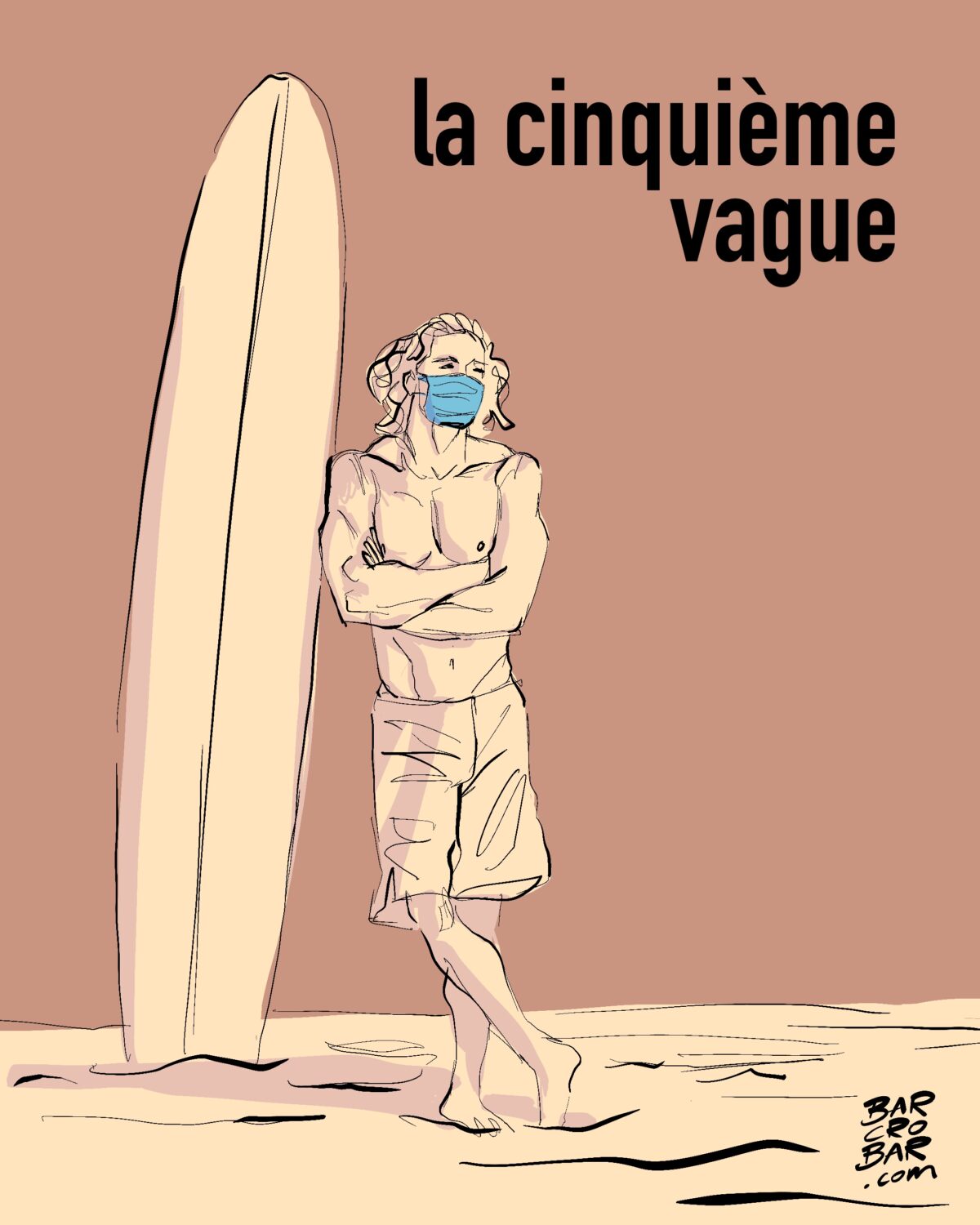One variant, several responses. At a time when Europe is facing a resurgence of the Covid-19 epidemic, due in particular to the appearance of the Omicron variant, which the WHO considers to be "worrying", Our neighbours are implementing very different policies to break the chains of contamination and avoid overloading their hospitals.
Franceinfo brings you an overview of the new health measures in Europe.
Reconfinement in the Netherlands
For the time being, this is the most restrictive measure in Europe. On Saturday 18 December, Dutch Prime Minister Mark Rutte announced a national lockdown from 19 December to 14 January. This means that all non-essential shops, restaurants, bars, cinemas, museums and theatres will be closed for four weeks. Schools, which were closed a week early, will remain closed until 9 January.
The Dutch government is particularly concerned about the Omicron variant. "This forces us to reduce our contacts as quickly as possible, and as much as possible.explained Mark Rutte during his speech. Although leaving the house is not regulated, it is still forbidden to have more than two guests at home. This rule will only be relaxed for the Christmas weekend and the New Year period, when the maximum number of guests will be four.
In Portugal, caution and vaccination for children
Portugal is Europe's leading country in terms of vaccination rates, with 88.9% of its population of 10.3 million vaccinated. The country strictly controls travellers entering its territory, even if they come from European Union countries. Since December 1, all travellers to Portugal must present a negative PCR test less than 72 hours old, or a negative antigen test less than 48 hours old. This measure is accompanied by a form for tracing passengers in order to trace the chain of contamination. As the French embassy in Portugal points out on its website, the isolation of people identified as contact cases can go from "up to 14 days or more in certain situations"..
On Saturday, Portugal also extended its vaccination campaign to children aged between 5 and 11, using the Pfizer paediatric vaccine. The move was justified by the sharp rise in the epidemic among this age group, explained Portuguese Prime Minister Antonio Costa. The government's stated aim is to limit as far as possible the spread of the Omicron variant, which should still account for 80% of new infections between now and the end of the year, according to the country's health authorities.
To reduce contact after the Christmas and New Year rallies, the Socialist executive has also decided to extend the school holidays and make teleworking compulsory during the first week of January.
Mandatory teleworking and holiday restrictions in Switzerland
The Swiss Federal Council has announced that teleworking will once again be compulsory in the country from 20 December. "We're trying to avoid an explosion of cases and the situation going off the rails. The alternative, closures, is what we don't want".Federal Health Councillor Alain Berset explained to RTS. Additional measures have also been taken in certain cantons.
From 20 December, access to restaurants, cultural establishments, sports and leisure facilities and indoor events will be restricted to people who have been fully vaccinated or cured of Covid-19. This tightening of the ban has long been called for by health experts, in order to counter the fifth wave of the epidemic already being felt in the country. Private gatherings are now limited to 30 people indoors or 50 outdoors, including children. But if one of the guests (aged 16 or over) is neither vaccinated nor cured, the limit is reduced to 10 people.
Tighter controls on travellers in Italy, Greece and Germany
Vaccination alone is no longer enough to travel to certain European countries. Since 16 December, Italy has required a negative Covid test for all travellers, regardless of their vaccination history. As for those who have not been vaccinated, they must observe a compulsory five-day quarantine. From Sunday, the same applies to entry into Greece. This rule should remain in force for at least "for the holidays Mina Gaga, the Greek deputy health minister, explained on the RFI website.
In Germany, a quarantine is now imposed on unvaccinated travellers from certain countries classified as "high-risk". Since Sunday, France has been on this red list, alongside Denmark, Norway, Lebanon and Andorra. The German authorities specify that this is a self-quarantine that must last a minimum of 5 days, and can only be terminated by a negative PCR test. Failure to comply with this requirement can result in a fine of up to €25,000.
In Ireland, lights out at 8 p.m. for many establishments
From Monday, it will no longer be possible to go to the cinema, the theatre, pubs or restaurants after 8pm in Ireland. Once again, this drastic measure is justified by the spread of the Omicron variant, described by the Irish Prime Minister, Micheál Martin, as an "epidemic". "serious threat which already accounts for a third of new infections in Ireland.
Gatherings will now be subject to restrictions. Weddings are limited to 100 people, and indoor events must not exceed 50% of their capacity, up to 1,000 people. The same rule applies to outdoor events, with a maximum capacity of 5,000 people.
Denmark closes cultural and social venues for a month
The curtains will remain down for a long time in Denmark, which is witnessing a historic surge in the number of cases of Covid-19, largely attributable to the Omicron variant. In the week from 13 to 18 December, the average number of new infections was 8,666 per day, twice as many as in the last epidemic wave, according to the OurWorldInData website.
Faced with this explosion in the number of cases, the Danish government has ordered the closure of cinemas, theatres and concert halls from Sunday, for a period of one month. Museums, swimming pools, zoos and amusement parks are also affected by this decision. Restaurants and bars will remain open for the time being, but will be required to limit their capacity and close at 11pm.
Text:
Pierre-Louis Caron
France Télévisions


